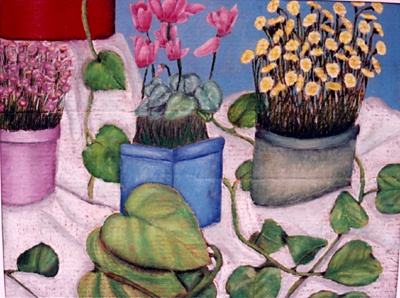All Nonfiction
- Bullying
- Books
- Academic
- Author Interviews
- Celebrity interviews
- College Articles
- College Essays
- Educator of the Year
- Heroes
- Interviews
- Memoir
- Personal Experience
- Sports
- Travel & Culture
All Opinions
- Bullying
- Current Events / Politics
- Discrimination
- Drugs / Alcohol / Smoking
- Entertainment / Celebrities
- Environment
- Love / Relationships
- Movies / Music / TV
- Pop Culture / Trends
- School / College
- Social Issues / Civics
- Spirituality / Religion
- Sports / Hobbies
All Hot Topics
- Bullying
- Community Service
- Environment
- Health
- Letters to the Editor
- Pride & Prejudice
- What Matters
- Back
Summer Guide
- Program Links
- Program Reviews
- Back
College Guide
- College Links
- College Reviews
- College Essays
- College Articles
- Back
The Future of GM Foods MAG
Scientists around the world are developing remarkable new ways to engineer bigger and better seeds that produce more and cost farmers less. These farmers are, in turn, planting the seeds on 57.7 million hectares in the U.S. and on millions of hectares throughout the world. Genetically modified (GM) crops were introduced a decade ago, and questions about their safety and impact on the environment remain unanswered.
GM foods are produced by inserting desirable pieces of DNA from one organism's genome into another organism's genome. This changes the DNA sequence, which directly affects its traits. According to WorldWatch, the most common GM crop traits are herbicide tolerance and insect resistance.
According to Dr. Don Huber from Purdue University, the manufactured herbicide resistance gene implanted in Monsanto's Roundup Ready GM seeds is creating super weeds and insects that are not affected by glyphosate, Roundup's active ingredient. Another issue with the plants that have glyphosate engineered into their DNA is that this chemical exits the plant through the roots and can contaminate ground water and kill organisms in the soil that play a vital role in plant development. Therefore the engineered plants may not be as healthy as unmodified crops.
According to an article by Verlyn Klinkenborg of the editorial board of The New York Times, there is plenty of evidence that seeds from genetically engineered plants are spreading into unintended landscapes, including fields with conventional crops. This could potentially become an issue if a problem with GM foods is unearthed. Farmers are already reporting contamination of fields by genetically engineered crops. How will we rid our ecosystem of these seeds?
Hurrying the long, steady process of evolution has the potential to cause unexpected results. With this in mind, I believe that our country should join many others around the world and freeze GM technology until further research has been done on the potential effects. There is more than just farming practices on the line; the health of billions of people is also at stake.

Similar Articles
JOIN THE DISCUSSION
This article has 0 comments.
